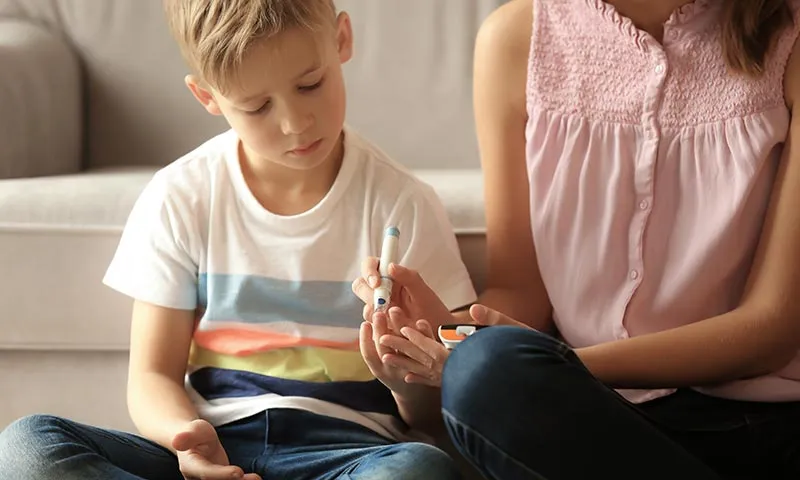The family environment is a key factor in cases of children's diabetes, which must promote its independence and self -esteem.
It is estimated that in Spain approximately 29,000 children under 15 suffer diabetes and that about 1,100 new cases are diagnosed every year.
A disease that is characterized by high blood sugar levels, either by a failure in insulin production by the pancreas (type 1) or by the resistance to the action that it should exert on glucose in order to convert itin energy (type 2).
It is important to start from this distinction since 95% of diabetics suffer from type 1 diabetes, despite the fact that the most common in absolute terms is type 2, typical of adults over 40 years and mainly associated with obesity pictures.
In any case, whatever the variant and age in which it is diagnosed, it is important that the family of the affected understand this disease and adapt their lifestyle to it.A premise that is much more relevant if possible in cases of children's diabetes, because the child must learn to live with her and act with great responsibility.
The family attitude is key
If your child has been diagnosed, there are two aspects in which you have to work from the first moment: assume that it is a chronic disease and incorporate the new routines that it requires as standardized as possible.
According to the Diabetes Foundation, "the attitude of parents in the face of the disease directly influences the child", especially after diagnosis, since the child usually crosses different phases - negation, rebellion, negotiation and depression - beforeget adapt to her.
For example, if parents adopt an attitude of anguish and overprotection, the child will generally tend to rejection and rebellion.
The family environment must foster autonomy and self -care, favor the expression of their feelings and treat diabetes normally.In addition, especially in the debut phase, it is important to solve all doubts that may arise with the specialist team and go to the support of educators or psychologists if necessary.
from the baby to preteens, phase to phase
A diabetic child, like any other, will grow and show attitudes of his age, something that must be combined with the learning that demands this condition.
In this way, up to three years, parents assume all responsibility in terms of controls, doses or food, should avoid overprotection and treat all children equally;Between 4 and 5 they begin to understand the disease (in a still magical way) and to detect hypoglycemia;At 6 and 7 you can take small responsibilities, such as measuring and loading insulin and 7-8 learn to self-lying.
From there, it is interesting that the child begins to understand diabetes in a more complex way, the function of insulin, the importance of diet or physical activity in their day to day ...
The main thing is to assume autonomy and grow in knowledge.
When you enter the preteen phase, meanwhile, the greatest task lies in promoting self -esteem, because social relations can affect how it values itself and how it looks within its school environment and friendships.


